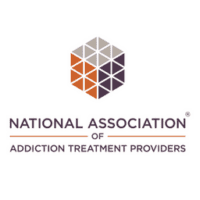Crystal Meth/Ice Abuse Facts – Drug Use


Crystal meth (also known as ice) is the crystalline form of methamphetamine – a highly addictive, highly dangerous drug. Crystal meth is a stimulant, which means it energizes the central nervous system. When people take meth, they feel extreme pleasure, confidence and energy. But those effects wear off quickly, leaving users irritable, exhausted, anxious and depressed.
As a result, people who use crystal meth often binge on it, leading to a cycle of addiction that can cause major health problems, overdose and even death. But despite its high-risk and destructive nature, its use is rampant in the US – according to the National Survey on Drug Use and Health, 440,000 people in the US reported using meth within the last month.
Crystal meth is usually ingested in two ways: by smoking its vapors through a glass pipe, or crushing it and snorting the powder. It’s known by many street names, such as blade, crank, Christy, crystal, glass, ice, quartz, shabu, shards and tweak.
People who are high on crystal meth typically have an unusually high amount of energy. They may be talking excessively or unusually active. They usually have a low appetite, and their breathing and heart rates are higher than normal. When users are crashing (coming down from the high), they tend to demonstrate extreme irritability.
They may be itching (feeling that bugs are crawling under their skin), unable to sleep and behaving erratically. They may also become violent or suicidal. Other signs of meth use include twitching and mood swings.
When someone uses crystal meth, it causes their brain and the rest of their nervous system to become highly alert. The brain releases a massive amount of its pleasure chemical dopamine, causing a strong rush of euphoria and seemingly unlimited energy.
It also causes increased heart rate and raised body temperature. This initial rush can last as long as 30 minutes, and the overall desired effects can last as long as 12 hours, during which users have little appetite and feel extremely alert.
Once the effects begin to wear off, awful sensations set in. Because their dopamine has been depleted, users can feel extremely irritable, tired, depressed and physically itchy. As a result, they often take more of the drug to offset these effects.
With frequent use, users often begin to experience extreme anxiety, insomnia and paranoia. Some people who use crystal meth become violent and even suicidal. The long-term mental and physical health problems that result from meth use are extremely serious. These include:
Crystal meth users often develop an appearance of premature aging since the body, including the skin, can no longer heal itself properly. One of the most serious effects of crystal meth use is addiction, when the body cannot function without meth. Once someone becomes addicted to crystal meth, their body and mind are dependent on it, and its absence will cause them to have uncomfortable withdrawals. Crystal meth withdrawal symptoms include intense cravings, insomnia, anxiety and depression.
If your teen or young adult is using crystal meth, it’s important – and urgent – that they receive treatment. Sandstone Care offers medical detox treatment that can help reduce the symptoms of withdrawal. Meth is a highly dangerous drug, and recovery from meth addiction involves physical and psychological challenges that require attention from addiction professionals. At Sandstone Care, we can help. We’ve helped hundreds of young people overcome similar struggles.


2102 University Park Blvd, Colorado Springs, Colorado, 80918
(719) 249-3545




